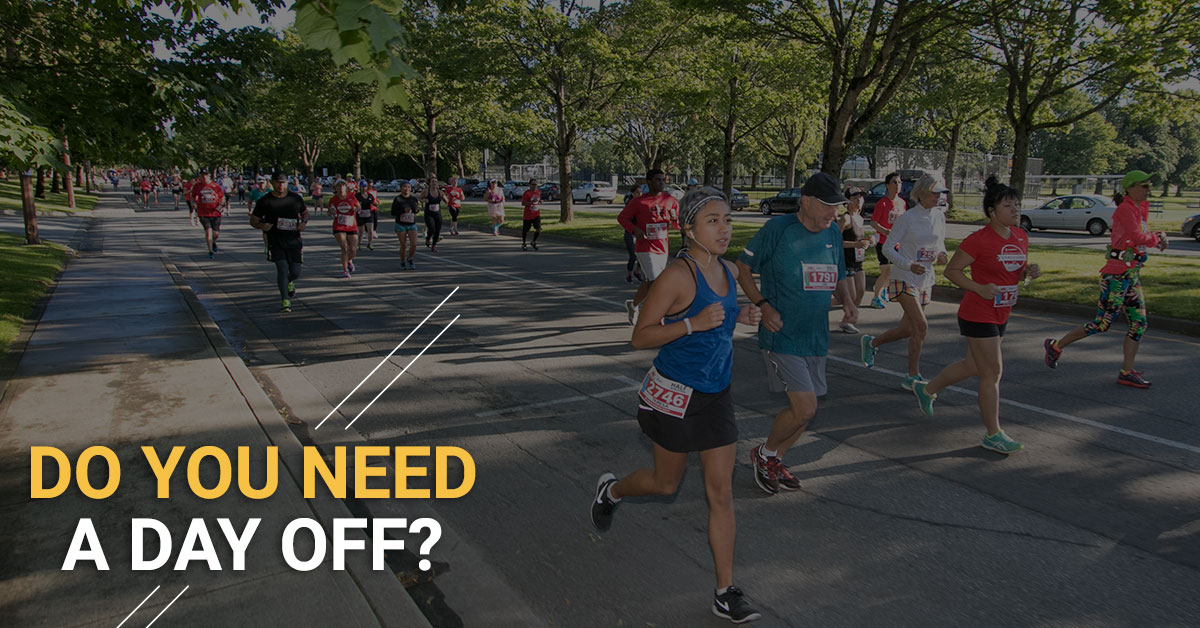
It’s often believed that “more is more” when it comes to training. Runners get stuck in a mindset that the more they do, the better they become. This is true to a certain extent, but oftentimes the value of a rest day gets forgotten. If you have put your body through the wringer with workouts, long runs, and cross training without a day off, chances are you aren’t going to recover enough to reap the benefits of your efforts. Instead, a cumulative fatigue can set in and leave you overtrained or burnt out.
Here are some tell-tale signs you might be due for a day off:
Altered heart rate:
This is noticeable particularly with individuals who train with a heart rate monitor. Many of us have an idea of what our resting heart rate is, and if you don’t it’s worth figuring out. When your resting heart rate is altered, it’s a sign that your metabolic rate is elevated to meet the demands of training. A lower-than-normal heart rate can also be an indication that you’re overtraining. When you’re feeling off, take a heart rate check and see if it’s trying to tell you to rest!
Increased irritability:
Overtraining can not only affect your physical state, but your emotional state too. When you’re starting to burn out, moodiness, depression, and general irritability are common. While we all know exercise is supposed to make us happier due to the blissful endorphin rush, these stress-fighting chemicals are released alongside cortisol which is a stress hormone. If cortisol levels remain elevated for an extended period of time, it can negatively affect one’s mental health. It can get to the point that running/exercising is no longer enjoyable, and anyone/anything can send you spiraling into a bad mood, especially if they ask about how training is going! If that’s the case, take a day or two to reset and allow your body to relax. Pop into a low key yoga class to really let your mind settle – just make sure it’s easy.
Extended muscle soreness:
When you’re training hard, it’s common to have delayed onset muscle soreness (DOMS) for one or two days after a workout. The issue is when that muscle soreness is prolonged, or just doesn’t go away. If you’re still sore after 72 hours, it’s worth scheduling a day off. Working out on sore muscle can hinder any muscle building efforts. Instead of trying to hammer out another workout session, or even pounding the pavement on an easy run, take that time to roll, stretch, refuel, and hydrate to allow your muscles to rebuild without being broken down again.
Insomnia:
When we’re tired from intense training, it’s usually easy to fall asleep. However, when we’re extremely fatigued, insomnia can set in. This is due to an overload on the body’s nervous system and hormonal system. It’s crucial to sleep during the 10pm to 2am period as your body builds and grows during rest, not during training. The stress of overtraining can lead to anxiety, impair our judgements, decrease cognitive function, and lower our immunity. Anyone who has suffered from insomnia knows that it’s a negative cycle: the less you sleep, the more you worry about not sleeping, and the harder it is to sleep. Taking a few days off and focusing on allowing the body to properly shut down at night could be the winning solution to one’s insomnia.
Unquenchable thirst:
Dehydration can play a huge role in overtraining. Our body sweats during exercise, and the more you exercise, the more you sweat. A good indicator of your hydration level is to look at the colour of your urine. The darker the colour, the more your body is struggling to retain fluids because there isn’t enough circulating the body to properly hydrate you. The dark urine indicates that the body is retaining as much water as it can while still excreting waste. Therefore, the more hydrated we are, the more water we have in our urine making it more diluted. Dehydration can also cause headaches, dizziness, muscle cramps, and irritability. If these symptoms are present, be sure to add in some electrolytes into your water too.







